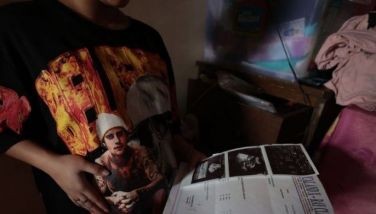RP's respect for religious freedom cited in US State Dep't report
MANILA, Philippines – The US State Department recently released a religious freedom report citing the Philippine government’s respect for religious freedom.
The International Religious Freedom Report 2008 released by the State Department’s Bureau of Democracy, Human Rights, and Labor said there was no change in the status of respect for religious freedom by the Philippine government during the year 2007, the period covered by the report.
The Philippines does not ban or discourage specific religious groups or religious factions. However, the report noted that Muslims who are concentrated in some of the most impoverished provinces have complained that the government has not made sufficient efforts to promote their economic development. Some Muslim religious leaders asserted that Muslims suffered from economic discrimination, the report said.
“There were no reports of religious prisoners or detainees in the country,” the report said.
The National Statistics Office (NSO) said that approximately 93 percent of the population is Christian. Roman Catholics, the largest religious group, comprise 80 to 85 percent of the population.
Islam is the largest minority religion, and Muslims constitute between five and nine percent of the population. Most Muslims are members of various ethnic minority groups, commonly referred to as Moros.
Groups that together constitute less than five percent of the population include Seventh Day Adventists, United Church of Christ, United Methodist, Episcopal Church in the Philippines, Assemblies of God, Church of Jesus Christ of Latter-day Saints (Mormons), and Philippine (Southern) Baptists. Domestically established denominations include the Philippine Independent Church (Aglipayan), Iglesia ni Cristo, and the Church of God International.
Christianity is the majority religion among indigenous peoples. Between 12 million and 16 million indigenous persons adhere to Catholicism or Protestantism, often incorporating elements of traditional indigenous belief systems.
Conversion from Christianity to Islam is most typical among overseas Filipinos who have lived and worked in Islamic countries, largely because conversion brings social and economic benefits while abroad.
“Many of these converts for convenience remain Muslim upon their return to the country and are known collectively as ‘Balik Islam’ (Return to Islam),” the report said.
Historically, the report said Muslims have been alienated socially from the Christian majority, and some ethnic and cultural discrimination against Muslims has been recorded. Young Muslim professionals reported that some employers stereotype Muslims as being less educated.
Some Muslims also reported that they have difficulty renting rooms in boarding houses or being hired for retail work if they used their real names or wore native Muslim attire.
“Therefore, many resorted to adopting Christian pseudonyms and wearing Western clothing,” it added.
Over the past 60 years, efforts by the dominant Christian population to resettle in traditionally Muslim areas such as Mindanao have fostered resentment among many Muslim residents. Many Muslims viewed Christian proselytizing as another form of resettlement, with the intention of depriving Muslims of their homeland and cultural identity, including their religion.
The US government discusses religious freedom with the government as part of its overall policy to promote human rights. US Embassy officers regularly met with representatives of all major religious groups to discuss these problems and concerns.
The US also supported the peace process with Muslim insurgents in Mindanao.
The US Embassy also maintained active outreach programs with nongovernment organizations. The embassy hosted meetings of political and opinion leaders from the Muslim community to discuss the US role in Mindanao, and continued to engage communities beyond metropolitan Manila.
For fiscal year 2007, 60 percent of the United States Agency for International Development’s (USAID) $69-million budget for the country went to programs in Mindanao, mostly in the Autonomous Region in Muslim Mindanao.
USAID programs were instrumental in supporting the peace process and helped foster an environment for greater religious tolerance. One example of such an effort was a multiyear USAID program that helped 28,000 former Moro National Liberation Front members make the transition from fighting to productive farming.
The Embassy also sought to help religious leaders broaden their cultural understanding through the Mission’s exchange programs. During the period covered in this report, the Embassy sent both Muslim and Christian leaders to the United States on International Visitor Program (IVP) grants. The Embassy also used two student exchange programs, the Youth Leadership Program, and the Youth Exchange and Study (YES) Program, to enable Muslim students to study in the United States and learn about religious tolerance and pluralism from the perspective of American youth.
- Latest
- Trending































